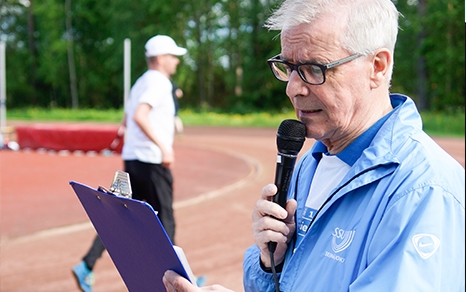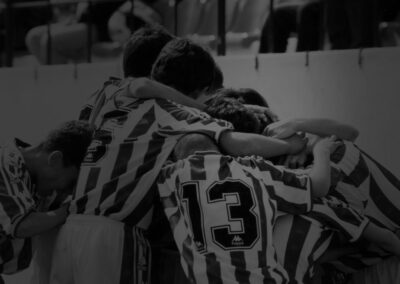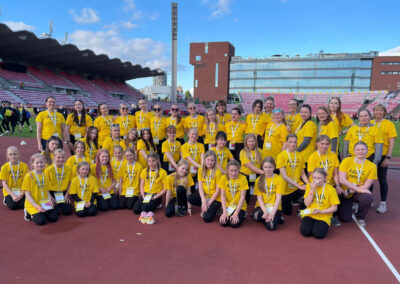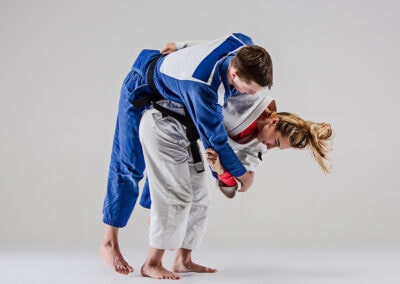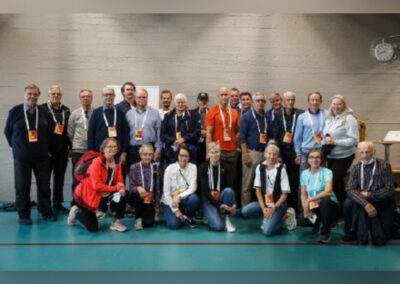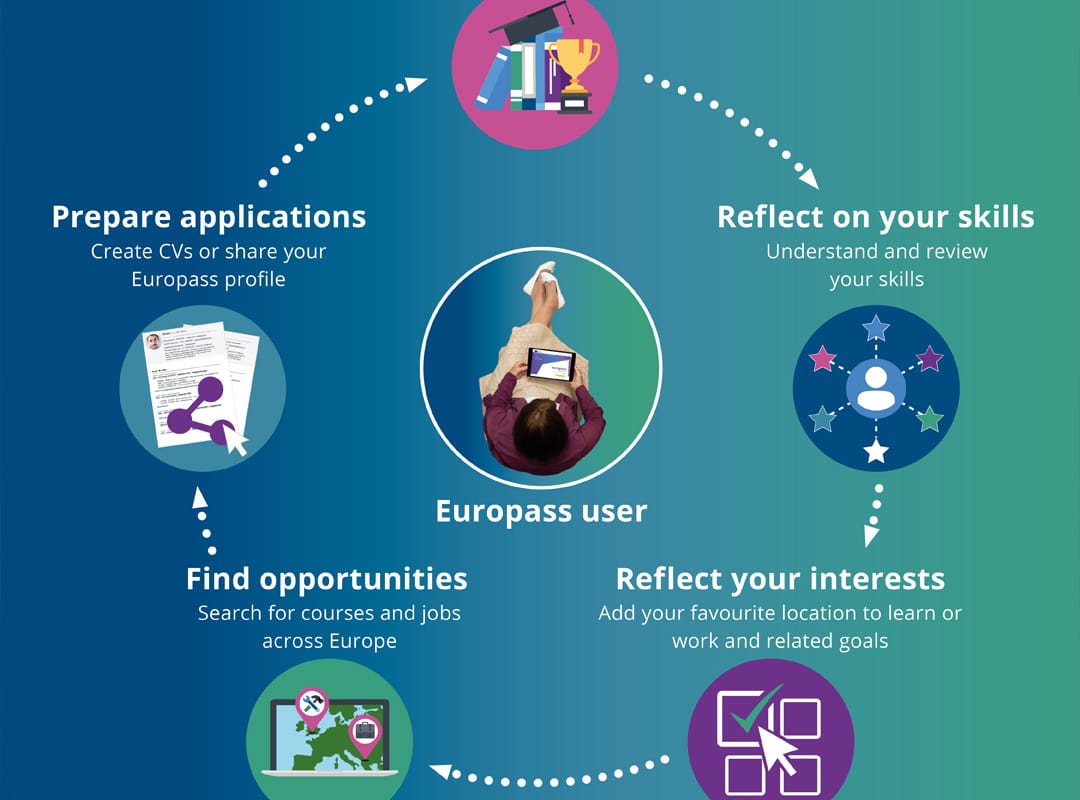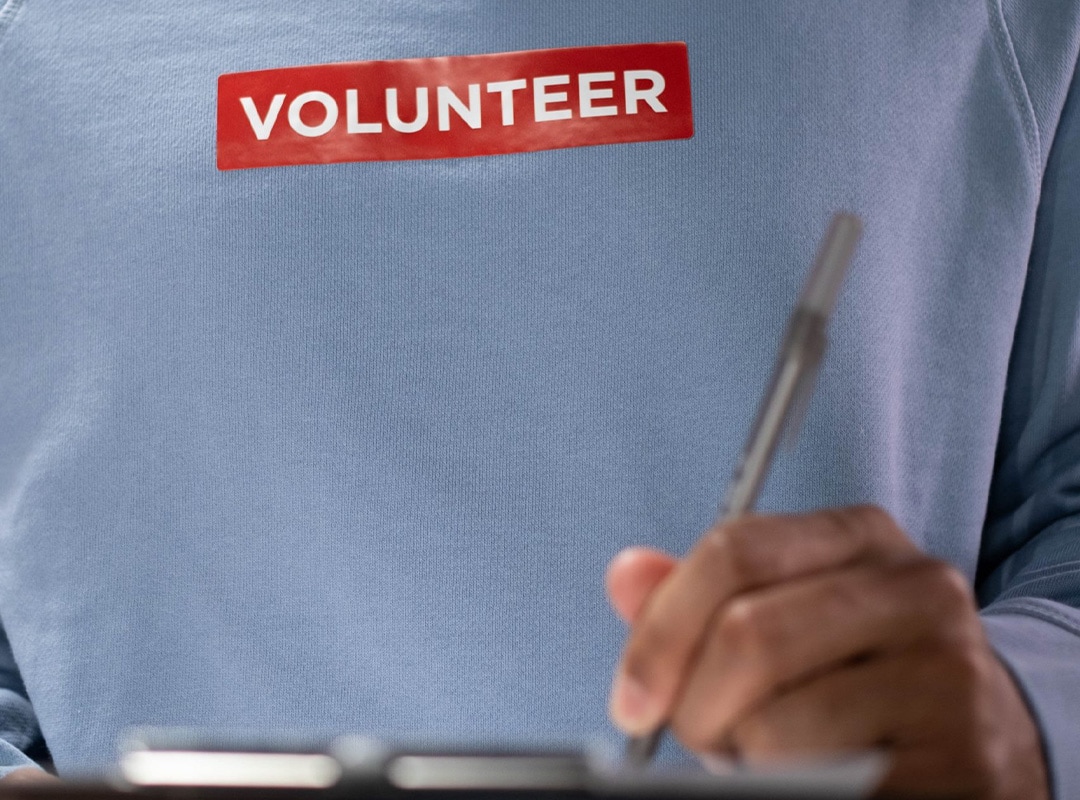Volunteer strategy
and
planning
Volunteer recruitment and deployment
Volunteer management and retention
Volunteer development and training
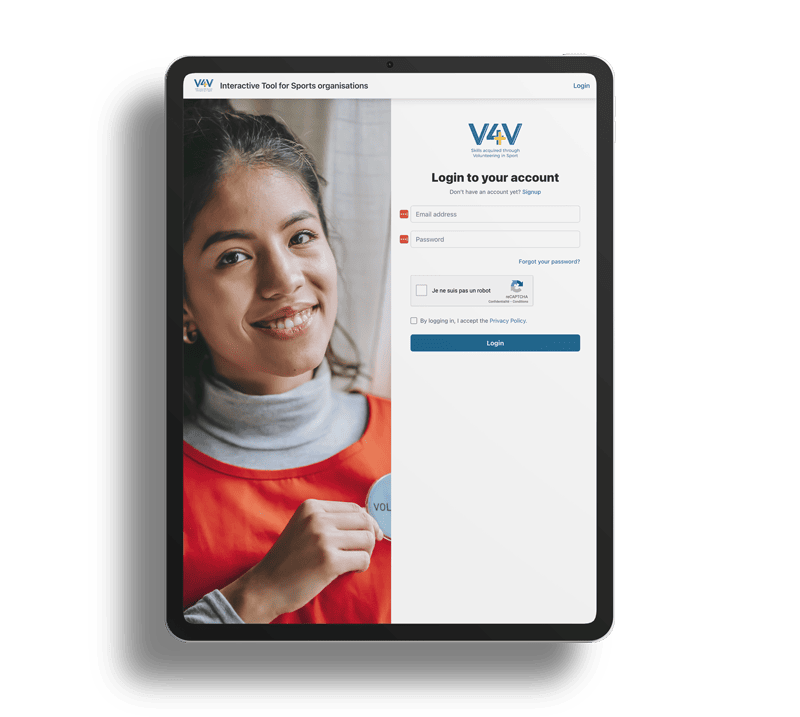
||| Sub-Pillar 4.1
4.1 – Developing volunteers’ skills through training and other means
Description:
The development of volunteers’ skills makes an important contribution to the successful operation of your sport organisation, helping to bridge any identified skills gaps and shortages across the workforce of volunteers. It is also important that your volunteers understand how the skills they develop within your organisation can be useful and utilised in other aspects of their lives. This section will therefore enable you to work with your individual volunteers to identify their skills needs and help them to manage their development accordingly. Formal training can be expensive and time consuming, so this section provides tools and ideas for your volunteers to be able to access certificated and other sort of training opportunities.
Key research findings – did you know that:
The Global Survey of sport organisations shows that:
- 84% said volunteers need appropriate skills
- But only 17% regularly review the skills and training needs of all their volunteers.
If sport organisations are going to give their volunteers appropriate training, they need to know what their training needs are. Skills audits are vital.
The survey also shows that:
- 97% said that volunteering helps volunteers to develop new skills
- But on average only 46% provide ongoing training to their volunteers
- Most of that training is focused on coaches and officials
- Only around 30% provide ongoing training for other types of volunteers.
If sport organisations are going to provide the best services to their members, all volunteers need to be properly trained.
The greatest barriers to training identified by sport organisations are:
- No budget for training volunteers (57%)
Therefore, sport organisations might benefit from looking at how they use their resources and think about how they can devote more to volunteer training.
From the Global Survey, we see that:
- 78% of respondents said they provided the training themselves,
- 61% said they used a sport federation,
- On average only around 12% use external training providers such as local authorities, colleges and universities.
Sport organisations might benefit from looking beyond themselves and their federations for appropriate sources of training.
Content area 1 : Undertaking skills audits with individual volunteers
Undertaking skills audits with your individual sport volunteers involves assessing their skills, knowledge, and personal qualities to better understand their strengths, areas of potential development, and how they can best contribute to the successful operation of your sport organisation. It particularly helps to ensure that your volunteers are contributing effectively and that their skills are aligned with your organisation needs and expectations.
Indeed, such process will help your organisation ensure that sport volunteers are assigned to roles that match their skills, knowledge as well as their interests. When volunteers are assigned to relevant roles that align with their skills and motivations, they are more likely to feel engaged and this will lead to a sense of accomplishment and personal fulfilment.
A skills audit should be seen as a collaborative process. It is essential for your organisation to consult and involve individual sport volunteers in this process to ensure their roles are in line with their skills, knowledge, interests, and availability. By doing so, you can enhance the change of a positive volunteering experience and then maximise their active contribution to your sport organisation.
Here are some tips for undertaking skills audits with your sport volunteers:
Define a clear purpose and scope for the skills audit:
You first need to determine what specific skills you want to assess and the reason why. For example, is your main objective to match your sport volunteers with their specific roles or activities? Are you aiming to identify skill gaps to underline training opportunities for your sport volunteers? Having a clear purpose and scope will help you to guide a useful and efficient skills audit process.
Develop the tools to be used for the skills audit:
You then need to create relevant tools to assess and gather needed information about the skills, knowledge and interests of your individual sport volunteers. This can include surveys or interviews for example. We encourage you to consider incorporating both self-assessment processes as well as assessment by others, such as supervisors or team members, to gather a full picture of your volunteer’s skills.
Communicate with your volunteers:
It is very important that you clearly communicate the purpose and benefits of such skills audit to your sport volunteers. Indeed, you will need to take the time to explain them how their active participation to the process will contribute to their own development (personal and professional) and to the overall success of your sport organisation. You will have to provide instructions on how the skills audit will be conducted, what information will be gathered, and how it will be used to make sure you get the full engagement of your sport volunteers.
Conduct the skills audit:
Once the process is ready and the volunteers have been made aware, this step involves administering the selected assessment tools to your sport volunteers and collecting the data. Depending on the size of your organisation and the number of volunteers, this may involve one-to-one interviews, online surveys, or any other methods. You will need to ensure that the skills audit process is conducted in a supportive and non-judgmental manner, and that volunteers feel comfortable providing honest and accurate information.
Analyse the data:
Once the skills audit has been carried out and the data collected, your sport organisation will need to analyse the findings to identify areas of strength and areas for development. The overall ambition will be to search for most common strengths and weaknesses among your sport volunteers, as well as any potential gaps between the skills required for their roles and their current skill levels. This can then help you to identify and propose solutions to any weaknesses (e.g., training opportunities or mentoring).
Provide feedback and create development plans:
The next step of the process will be to provide individual feedback to your sport volunteers based on the results and main findings from the skills audit. Through this step, you will have the opportunity to recognise and valorise their strengths and accomplishments, but also to discuss potential areas for improvement. You can then work collaboratively with your volunteers to create individualised development plans that outline specific steps for further developing their skills. This can include on-the-job training, mentoring, training workshops, or any other learning opportunities or resources that can help them enhance their skills and knowledge.
Implement and monitor progress:
You have responsibility to implement the development plans and monitor the progress of your sport volunteers to provide ongoing support, feedback, and guidance as they work towards their development goals. Your role will also include regularly reviewing and updating the skills audit data to track progress and make adjustments as needed, including addressing any concerns or challenges, and providing feedback. Ideally, you should create an environment where your sport volunteers feel comfortable asking for assistance and/or sharing their concerns, suggestions and ideas.
Undertaking skills audits with individual sport volunteers is essential for effective volunteer management to ensure that your volunteers are effectively utilising their skills, and that their contributions are in line with your organisation’s needs and expectations. It can also help volunteers themselves to identify their strengths, areas for development, and opportunities for growth, ultimately benefiting both the volunteers and your organisation.
Such process will make sure that your volunteers are engaged in roles that align with their skills and interests, leading to a positive experience, high level of satisfaction and improved level of performance. This will contribute to better retention of volunteers and reduce turnover.
Content area 2 : Creating individual volunteer development plans
Creating individual volunteer development plans is an essential step in ensuring that your sport volunteers have the support and resources they need to grow and perform in their roles in your organisation.
Below you can find some suggestions on how to create effective individual volunteer development plans:
Review skills audit data:
The first step is to refer to the skills audit findings to identify the strengths, weaknesses, areas for development, interests, reasons for volunteering, motivations, and aspirations of each of your sport volunteer. Once you know your volunteers better, you will be able to use this data as a foundation for creating individualised volunteer development plans.
Set clear goals:
It is crucial that you consult and work collaboratively with your sport volunteers to set clear and specific goals for their own development. These goals should be aligned with the skills needed for delivering their volunteer roles and should be clear and achievable within a reasonable timeframe (SMART). You will need to ensure that the identified goals are all measurable and realistic, so the progression of your volunteers can be tracked, monitored, and measured effectively. These goals also need to be in line with the aspirations, interests, and ambitions of your sport volunteers so it will be extremely important to liaise and consult with them. Ideally share the identified list of goals with your volunteers and give them an opportunity to comment.
Identify resources and opportunities:
As a sport organisation deploying sport volunteers, you will have to identify the resources and opportunities available to support your volunteer’s development. This can include on-the-job training, workshops, seminars, mentoring, online courses, or other learning opportunities or resources. Involve your volunteers in this process so that you can identify their preferred learning process and availability when selecting development resources.
Create an action plan:
Outline the specific steps and actions needed to achieve the identified volunteers’ development goals. You can break down the identified goals into small and manageable tasks/duties and create an action plan with precise timelines, deadlines, and responsibilities. Ensure that the volunteer is involved in the creation of their individual action plan, and that it is realistic and achievable.
Provide ongoing support:
Your role will be very important to offer ongoing support and guidance to your sport volunteers as they work towards their development goals. We advise you to provide regular feedback, encouragement, advise and resources to help them, and to be available to answer questions, provide clarifications, and offer guidance as needed.
Review, monitor and update regularly:
You should continuously review, monitor and evaluate the progress and activities of your sport volunteers against the identified goals. Through this step, you can collect feedback from your volunteers, as well as from supervisors, team members, and other stakeholders, to assess the effectiveness of the development plan and make any necessary updates or adjustments to ensure that it remains relevant and effective. Part of this step will also be to celebrate successes and recognise achievements when relevant and address any potential challenges or obstacles that may arise. We strongly encourage you to make sure to keep an open line of communication with your sport volunteer and create an atmosphere of trust to ensure that their needs are being met and that they are making progress towards their identified goals.
Creating individual volunteer development plans is essential to help your volunteers to enhance their skills, knowledge, and personal qualities, and contributes to their overall level of satisfaction and engagement in their roles within your sport organisation.
It also ensures that your volunteers are better equipped to contribute to the successful operation of your organisation. By providing ongoing support, resources, and guidance, you can help your volunteers reach their full potential, enhance their personal and professional skills and achieve their development goals.
Content area 3 : Implementing and reviewing volunteer development activities including training and shadowing
Implementing and reviewing volunteer development activities is a crucial process to ensuring that your volunteers have the necessary skills, knowledge, and support to perform effectively in their roles within your sport organisation.
Below you can find some suggestions to effectively implement and review your volunteer development activities:
Develop a comprehensive training plan:
Based on the skills audit data and individual volunteer development plans, you will have hopefully developed a comprehensive and individualised training plan for each volunteer. Once you have identified training needs and objectives, you will be able to identify with your volunteers the most appropriate training methods and development activities to undertake. This can include formal training sessions, such as workshops, seminars or online courses, as well as informal training and mentoring opportunities or a combination of different approaches. It will be important to ensure that the training plan is aligned with your overall organisation’s goals and objectives, and that it addresses the identified skill gaps of the volunteers and their personal aspirations.
Provide resources and support:
Once identified, you will have to ensure that your volunteers have access to the necessary resources and support to complete their training activities. This may involve gaining access to training opportunities from an external organisation such as a sport federation, or your organisation identifying and securing additional resources to provide or fund development activities. Either way, you need to make sure that your volunteers have the necessary resources and support to succeed in their training activities. Additional guidance on accessing resources to support volunteer management can be found in pillar 1, sub-pillar 5 (Click here).
Monitor progress:
You will need to regularly monitor the progress of your sport volunteers in their development activities to ensures that the training plan is effective and that volunteers are continuously growing and improving in their roles. You can for example track their active participation and completion of identified training activities, or check their performance in shadowing or on-the-job training. Through this process, feel free to provide regular feedback and support as needed, and address any challenges or obstacles that may arise.
Some examples of processes to monitor progress:
• Regular meetings with volunteers to discuss their progress to review their training objectives and the skills acquired. Such activity can encourage open and transparent communication allowing volunteers to share their experiences, challenges, and successes.
• Observation of your sport volunteers in action during their assigned roles or tasks. The allocated person from your organisation can attend a coaching session, a sport event, or an administrative duty to assess the performance to check how they apply in live situations the new knowledge and skills acquired through training.
• Regular feedback to your volunteers based on their performance to recognise their strengths and achievements while also offering constructive feedback to help them improve, to address any gaps or areas where additional support or training may be needed.
• Encourage your volunteers to engage in self-assessment and reflection on their own progress and developments. Your role will be to provide them with tools or templates and encourage them to evaluate their own performance against the training objectives. This process can help your sport volunteers to take ownership of their development and identify areas for growth.
• Periodic surveys or evaluations to gather feedback from your volunteers themselves, as well as from relevant stakeholders such as participants, athletes, or supervisors. You can also use surveys to assess the perception of their own progress, the impact of training on their performance, and potential areas for improvement.
• Formal performance review meetings can be organised at defined intervals, such as quarterly or annually to discuss the volunteer’s progress, evaluate their performance against the training plan objectives, and set new goals for their continued development.
Review effectiveness:
An important step will be to evaluate the effectiveness, quality, and relevancy of the volunteer development activities by collecting feedback from your volunteers, trainers, mentors, and other stakeholders. This review will enable you to assess whether the proposed training activities are meeting the intended goals and objectives, and if your volunteers are applying the knowledge and skills gained from the training in their roles. You will be able to use this feedback to make improvements and adjustments to the training plan as needed.
Update individual volunteer development plans:
Based on the progress and feedback from the volunteer development activities, you will update the individual volunteer development plans as needed. You will be able to revise the identified goals, action plans, and timelines to reflect the progress made and the new skills or knowledge acquired through the training or shadowing activities.
Recognise and reward achievements:
This is an ongoing process to recognise and celebrate the achievements of your sport volunteers in their development activities. As an organisation deploying volunteers, it will be important for you to regularly provide positive feedback and acknowledge their efforts, commitment, contribution and progress. There are suggestions of how you can recognise and reward volunteer achievements in pillar 3 sub-pillar 4 (Click here).
Implementing and reviewing volunteer development activities is a dynamic and ongoing process that requires continuous assessment, feedback, and improvement. By providing your sport volunteers with the necessary training, resources, and support, you will empower them to perform successfully in their roles, to make meaningful contributions to the organisation, to enhance their level of satisfaction, to continue their professional and personal growth, and to enhance the overall effectiveness of your sports organisation.
4.1 Case studies
||| Sub-Pillar 4.2
4.2 – Supporting internal volunteer progression
Description:
A motivating factor for some volunteers is to be able to assume greater levels of responsibility as they become more experienced. For those willing to take on higher levels of seniority, it is usually necessary to support them through training and other forms of skills and competence development. This section will assist your organisation to engage with your volunteers to identify and discuss their aspirations for progression, as well as plan and manage any ‘promotions’.
Key research findings – did you know that:
Desk research and interviews carried out through the V4V project suggest that succession planning is vital to sport organisations and volunteers.
From the Global Survey on sport volunteering:
- 23% of organisations said volunteers see few opportunities to progress in their roles
Content area 1 : Identifying volunteers’ aspirations for internal progression
Internal progression is about supporting and developing your volunteers to progress within your sport organisation – this can mean taking on additional responsibilities and/or more senior roles. To facilitate progression, you will need to be aware of your volunteers own personal aspirations. Do they want to take on more responsibility? Do they want to work towards taking on a more senior role? Once you know what their aspirations are you can start to develop a plan in order to help them fulfil these ambitions. The previous sub-pillar (Click here) provided advice on how sport organisations can develop training and development programmes for volunteers. Before you get to this point, it is first important to identify your volunteer’s aspirations. These should be based on the volunteers’ own aspirations, and not be imposed on them by the sport organisation.
There are several points at which you can do this:
1. During the recruitment phase
It is good practice to ask about your volunteer’s aspirations during the recruitment phase, for example, during an interview or informal conversation about the volunteer role and the individual’s hopes and expectations connected to this. You may wish to ask questions such as:
- What do you expect us to offer to you?
- What are you expecting to share with us?
- How do you expect to develop and progress during the volunteering experience?
- Is it your intention to work professionally in this field and you hope that the volunteering experience will help you in that goal?
By identifying aspirations before the volunteer commence their volunteering, you can put in place initial training and development to support them into the role, whilst also being aware of longer-term aspirations and hopes. Importantly, this also provides you with the opportunity to manage expectations if the volunteer has aspirations that your organisation cannot fulfil. This means the volunteer will make an informed decision about whether to continue their volunteering journey with your organisation.
This initial conversation will enable the volunteer coordinator (or equivalent) to assess what type of aspiration the volunteer has.
-
- Professional:
The volunteer wants to become part of the employed staff at a certain point or work professionally in the sector. - Emotional:
The volunteer wants to contribute to the vision and mission of the project because they feel themselves connected with the purpose. - Leisure time:
The volunteers want to invest free time in activities to know more people, live a healthy lifestyle and enjoy new things.
- Professional:
If you detect that the volunteer holds number 1 as their strongest aspiration, you can accompany the volunteer along the volunteering process in a very specific and strategic way.
Being clear from the beginning can promote a good long-term relationship between the volunteers and the organisation promoting engagement, commitment and proactive learning. Indeed, volunteers who feel that their aspirations and goals are aligned with the organisation’s mission and values are more likely to be engaged and committed to their role. Moreover, when volunteers know that there is a pathway for progression within an organisation, they are more likely to invest time and energy in developing the skills needed to achieve their goals: you never know, but you may have in front of you the next Director or Coordinator of one of the areas of the Club or sport centre.
2. During their volunteering
Once the volunteer is embedded within the organisation, you will need to ‘check-in’ regularly with them to assess whether their aspirations have changed. Unsurprisingly, once the volunteer becomes settled and familiar with the organisation, they may change their aspirations. Therefore, it is recommended that you undertake regular ‘reviews’ with your volunteers. Ideally, these should take place annually and include a review of their progress / performance / enjoyment in their current role whilst also discussing future aspirations. The annual review can then be used as the foundation for the creation of, or changes to, their training and development plan (also discussed in the previous sub-pillar). This can then guide conversations with other volunteers / staff within the organisation about how to facilitate the volunteer’s development and internal progression. This will once again contribute to the volunteer having a good and formative experience within your organisation.
Depending on the size of your volunteer workforce, you can undertake reviews in different ways. If your volunteer workforce is relatively small, you can have one-to-one discussions. These can help you to better understand their goals, interests, motivations, ambitions and aspirations. If your volunteer workforce is large, you may need to include volunteer aspirations as part of an annual volunteer survey. This could include questions on their own career interests, potential skills they want to develop, and their willingness to take on additional responsibilities, leadership or roles within the organisation. As with all surveys, it is then important that you act on the information gathered – this may involve follow-up conversations with specific volunteers who have expressed certain aspirations to progress within the organisation.
3. After volunteering (i.e. lapsed volunteers)
It can be useful to maintain a database of lapsed volunteers – this enables you to contact them periodically to see if they are interested in returning to volunteer. It may be that their personal circumstances have changed or that their aspirations have changed and undertaking a volunteering role may now enable them to fulfil these. Utilising a database enables you to share more opportunities to volunteer, invitations to events and also job offers which may help your organisation fill any shortfalls in volunteer role.
Content area 2 : Tailoring development opportunities to enable volunteers to assume greater responsibility
Once you have identified the aspirations of your volunteers, you will need to identify, source or create development opportunities for those volunteers to enable them to progress within the organisation. This will support volunteers to expand their role and contribution or take on new roles and responsibilities. This can help the organisation to meet its strategic goals and also support the personal development of your volunteers, increasing their skill levels and attributes, and increasing their confidence and sense of fulfilment.
Your organisation may wish to consider the following actions and development opportunities for its volunteers to enable them to take on more responsibility:
1. Creating opportunities for leadership roles:
Offering leadership roles to your volunteers can provide them with the opportunity to take on greater responsibility and contribute to the organisation in a meaningful way. Those roles could be as the main responsible person of a team area, a member of a board, an honorary member of a group, a volunteering coordinator or a volunteering trainer.
2. Offering certifications or special learning courses:
Your organisation can give volunteers the chance to become experts or to approach different subjects or tools that would become beneficial for them and you. For example, First aid courses, leadership workshops, IT skills workshops, emotional intelligence training, sport management training, and specific coaching or officiating courses.
3. Regular communication about new or enhanced volunteer roles and future jobs:
If you have identified the aspirations of your volunteers, you can specifically target certain volunteers with opportunities that meet these aspirations. This provides you with the opportunity to match the skills and attributes of volunteers to certain positions and also recognises the volunteers’ contribution to the organisation. This will enable the volunteers to assume different roles and responsibilities while keeping them motivated and engaged.
4. Promote self-assessment tools:
You can provide access to pre-existing self-assessment tools like the ‘Youthpass’ or ‘Lever Up’ that your volunteers could complete to reflect on their volunteering experience, skills, interests, and aspirations. These tools could help your volunteers to identify their own goals and aspirations for internal progression.
5. Carry out observation and feedback:
You could observe your volunteers in their roles and provide feedback on their performance. Through regular feedback, you may gain insights into their strengths, interests, and aspirations, and identify potential areas for growth and internal progression.
6. Arrange informal conversations with other members of employed and volunteer staff:
You can arrange informal conversations with staff members (paid or unpaid) who engage closely with your volunteers to gather comments about their aspirations. Staff members may have observed volunteers’ interests or motivations and can provide valuable feedback on their potential for internal progression.
7. Develop a peer-to-peer feedback system:
You can encourage your volunteers to provide feedback to each other and share their aspirations for internal progression. Peer-to-peer feedback can provide insights into each other’s strengths, interests, and goals, and create a supportive environment for identifying aspirations. This might also involve volunteers undertaking self-reflection both on their own volunteering experiences, achievements, and future aspirations.
8. Provide mentoring support:
You could allocate mentors to volunteers to guide through taking on additional responsibilities or a new role. The mentor should meet regularly with the volunteer with the aim of guiding and providing support to them. This could include dealing with issues connected to their role or problem solving, and identifying the learning acquired during their volunteering experience. A mentor allows volunteers to discuss matters they might not feel comfortable about sharing with other volunteers, staff or the volunteer coordinator. The mentor should have prior expertise in volunteering and a direct/indirect knowledge of the organisation and of the volunteering activities.
9. Job shadowing:
Your organisation could offer volunteers a “job shadowing” exercise with someone that is already working in the role they aspire to (this could be another volunteer or a paid member of staff). This will give the volunteer the chance to see if the role is something they would like to do or not, and will also give the person in the role the opportunity to see the potential of the volunteer and share knowledge with them.
10. Networking time:
Your organisation can invite the volunteers with internal aspiration progression to events where they can express their motivations to people in the organisation or wider sector, so they can start promoting their experiences and finding opportunities to fulfil their aspirations and ambitions.
The blend of development activities will depend on the volunteer and the nature of their personal aspirations. However, it is key the development plan should be agreed with the volunteer and then reviewed regularly to ensure that it is supporting the volunteer to develop as expected. You may also need to consider providing additional support to volunteers to help them to take advantage of some of the development opportunities and activities identified – this could be as simple as being encouraging to providing resources to help them access specific opportunities.
Content area 3 : Supporting volunteers through the process of internal ‘promotions’
Internal promotion refers to an internal candidate being promoted to a new position (or assuming greater responsibility within their current role), instead of the organisation hiring an external candidate. Supporting your current volunteers for internal promotions is beneficial for both the volunteer and your organisation. As the volunteer knows your organisation, their adaptation to the new position will be faster and is likely to require less support than an external candidate.
However, it is important to consider the skills and attributes of the volunteer. It is not beneficial to offer an internal promotion to a volunteer in an area that is not suitable for the volunteer’s ability and personal development aspirations, or which they are unable to acquire the necessary skills for through training or personal development activities.
You can support a volunteer through the process of internal promotions by:
1. Matching a volunteer’s aspirations, skills and attributes to specific volunteer roles or job opportunities:
Consider their existing qualifications, skills, attributes and experience – if there is a new opportunity in the organisation be proactive about opening this up to specific volunteers. It can be both beneficial for them and for your organisation to offer this opportunity to your volunteer. It provides the volunteer with a sense that their efforts and expertise is recognised and valued, helping to demonstrate and create a positive culture within the sport organisation. Other volunteers can see that colleagues are being rewarded and recognised for their hard work and may also seek promotions and additional development opportunities.
2. Providing support and assistance with any application or recruitment processes:
This could be part of the responsibility of the volunteer coordinator or specific mentors, but it can be extremely supportive and reassuring for a volunteer to receive feedback and assistance with any applications or interviews. This is especially important for volunteers who may lack confidence or are inexperienced in going through recruitment processes. Many volunteers may also be unaware of the skills and attributes they possess and struggle to identify and articulate them to others.
3. Crossmatch volunteer skills and attributes with other roles within your organisation:
Many volunteers possess transferable skills but may be unaware of how these translate into other roles. For example, a volunteer that supported the logistics team at several sports events may be suitable for positions that will require skills like project management, time management, client service and team management. A volunteer that has been engaged for many years in club activities, has good human relationships with the users and board members and is experienced in administration because of their contribution in different activities, can be suitable for a position like coordination of an area or guest service.
4. Provide feedback on promotion successes (and failures):
It is important that a volunteer understands what they did well to secure an internal promotion, but also why they may have been unsuccessful. Any feedback provided should be sensitively communicated to avoid deflating the volunteer and discouraging them from applying for internal promotions in the future.
5. Provide support to the volunteer in their new role:
Once the volunteer is in their new role, it is important that support is provided to help them settle into it. They should be provided with a point of contact where they can receive support and guidance. This could be in the form of a mentor or a nominated individual with expertise in an appropriate area.
4.2 Case studies
||| Sub-Pillar 4.3
4.3 – Mentoring volunteers
Description:
Mentoring is a specific relationship that involves one individual (for example, a more experienced volunteer) supporting and advising another in a structured way. Effective mentoring can accelerate and consolidate volunteers’ integration and development, enhancing their ability to contribute to your sport organisation’s work. Acting as a mentor can also be a developmental experience. Here you will find resources that will help you clarify the meaning of mentoring as it applies to your organisation, plus identify and support mentors and mentees.
Key research findings – did you know that:
From the Global Survey of sport organisations:
- 23% of respondents thought that training on the job is enough for volunteers,
- 41% said that providing ongoing support to volunteers would be a good way of retaining them.
Learning on the job is often an effective way of training volunteers, but they need supervision and support during the process, and mentors are vital to this process.
Content area 1 : Understanding the nature and benefits of mentoring
A mentor is a person who gives a younger or less experienced person help and advice over a period of time, especially at work or school. The main aim of a mentor is to guide volunteers in their volunteering journey in your organisation.
In a volunteering experience, a mentor has some key roles that should be clear both for the volunteers and your organisation.
A mentor is someone who :
- Supports and encourages the learning process of the volunteer
- Offers knowledge and individual support
- Listens and understands the expectations of the volunteer
- Sets concrete and achievable goals together with the volunteer for their personal and professional improvement
- Assigns and monitors tasks, and provides feedback to the volunteer
A mentor is not :
- A friend or a parent
- At volunteer’s disposal at 24/7 unless in an emergency
- Someone who should fulfil all expectations of the volunteer
Bear in mind these important principles:
- Mentors should not have a personal connection to the volunteer in order to maintain neutrality while taking decisions, enabling them to listen objectively to the volunteer’s situation and suggest ideas.
- The mentoring relationship is built on mutual trust, respect and communication. Both parties meet regularly to exchange ideas, discuss progress and set goals for further development.
Mentoring is more than advising and sharing knowledge. The relationship offers benefits for mentors willing to invest time in mentoring. Aside from the personal satisfaction of sharing skills and experience with someone willing to learn, being involved in mentoring also provides benefits that can reward mentors on a professional level. The mentoring relationship can focus on specific aspects of the volunteers’ role and development: it does not need to try and capture the entirety of the volunteer’s role.
Some of the key benefits for mentors are:
- Recognition as an expert and leader
- Contact with new perspectives, ideas and approaches
- Increased professional development
- Opportunity to reflect on own practices and goals
- Development of leadership style and training
Some of key benefits for your sport organisation:
Retention:
Volunteers who feel supported and valued are more likely to stay involved with your organisation for a longer period of time. Mentoring can help your volunteers feel connected to the organisation and more committed to its mission and goals.
Skills development:
Mentoring can help your volunteers to develop new skills and knowledge. Mentors can share their experience and provide guidance on how to approach different tasks and challenges, and this can help your volunteers to develop new skills and improve their performance.
Succession planning:
Mentoring can help your organisation to identify potential leaders from your pool of volunteers, and provide them with the skills and knowledge they need to take on greater responsibility within your organisation.
Increased engagement:
Volunteers who have a mentor are more likely to feel engaged and invested in their role. Mentoring can provide your volunteers with a sense of purpose and direction that can increase their motivation and satisfaction.
Increased confidence:
Mentoring can help your volunteers feel more confident in their roles. Mentors can provide guidance and support that can help volunteers feel more comfortable taking on new tasks and responsibilities.
Sense of community:
Mentoring can help build a sense of community among your volunteers. Mentors can help volunteers to feel part of the team and provide opportunities for them to connect with other volunteers and staff members of your organisation.
In brief, mentoring your volunteers is important because it can increase retention, improve skills development, support succession planning, increase engagement, and enhance the sense of community within your organisation. Mentoring can also help your volunteers to better succeed in their roles and feel connected to your organisation, which can benefit both the volunteers and your organisation.
Content area 2 : Identifying and training mentors
The preceding content area outlines the benefits of employing a mentoring approach with the volunteers in your sport organisation. In order for this to be a success it is necessary to identify potential mentors and support them to undertake the role. This can be undertaken as follows:
Define mentorship goals:
clearly outline the goals and objectives of the mentorship programme. What specific skills or knowledge do you want less experienced volunteers to gain from their mentors?
Identify mentorship candidates:
look for individuals within your sport organisation who have the necessary skills, experience, and willingness to mentor others. Potential mentors should possess good communication and leadership skills.
Ask for recommendations:
seek recommendations from your existing volunteers and staff about individuals who have been helpful, patient, and knowledgeable. They might also be aware of potential mentors.
Mentors may usually be sourced from your sport organisation’s existing volunteers and staff, but we should not rule out the possibility of identifying external individuals to provide mentoring to your volunteers. Potential mentors include seniors with experience and time, retired athletes and former volunteers of your organisation. Differing mentor backgrounds can lead to different kinds of mentee-mentor relationships:
Internal mentor
A potential mentor may already act as a task or line manager in the area in which your volunteer works. The task manager and the mentor are important figures in the volunteer’s life, but they should provide support in different areas, so a different individual should be chosen as the mentor in this instance. This also makes things easier for the mentor. The volunteer may not feel comfortable giving feedback or raising a problem/ issue if their task manager and their mentor are the same person. The task or line manager is in charge of supervising the overall volunteering project, ensuring the quality of the activities and the results reached by the volunteer. Together with the mentor, this manager is also in charge of monitoring the development of the skills and knowledge of the volunteer during the project, as well as ensuring the global wellbeing of the volunteer.
External mentor
In certain situations, external mentors can provide professional support to establish a healthier relationship between your sport organisation and the volunteer. External mentorship can offer levels of neutrality and objectivity that cannot be guaranteed when using internal mentors, who may have preconceptions which could impact the quality of them mentee-mentor relationship.
Regardless of whether they are internal or external or external to your sport organisation, the ideal mentor for your organisation is someone who:
- has good communication skills
- is empathetic and non-judgemental
- is knowledgeable
- is able to give constructive feedback
- is willing and able to devote time to developing others
- is eager to learn (including from volunteers)
Following the identification of potential mentors, a selection process can be undertaken which utilises some of the principles outlined in Pillar 2. It may additionally be necessary to provide training for the new mentors:
- Training is useful in ensuring mentors have the key knowledge and skills when supporting volunteers. It also provides mentors with strategies for handling difficult situations.
- It is crucial for mentors to avoid experiencing burn-out and to take care of their own mental health and wellbeing. Being a mentor can be a wonderful experience, but it can also be challenging related to different aspects of volunteering management. Training can provide support to help mentors manage the impact of the relationship on themselves.
Some of the possible themes your mentor training could include:
-
- Defining the role of a mentor.
- Setting clear expectations for both mentors and volunteers regarding communication, availability, and the duration of the mentoring relationship
- Making sure mentors understand their responsibilities and the resources available to support them.
- Providing advice from experienced mentors.
Content area 3 : Implementing and reviewing a volunteer mentoring scheme
As with all other aspects of this Toolkit, good practice is only an abstract idea until it is operationalised into meaningful actions. Thus, having decided that your sport organisation can benefit from a mentoring arrangement and having begun to identify and train mentors, it is necessary to define how the programme will be implemented and managed. It is crucial that every attempt is made to match mentors and volunteers based on skills, interests, and personalities. A highly experienced mentor might be very effective in general but might not be well matched to a specific volunteer with divergent interests.
Volunteers and staff of your sport organisation who will be undertaking mentoring duties need to be properly supported, and this includes their time input being formally recognised as part of their wider role:
- If the mentor is from within your sport organisation, it will be beneficial for all parties to determine the mentor’s tasks and responsibilities with them in advance and to record these in writing.
- Verbal agreements, or assigning someone as a mentor without their approval and/ or interest, can cause the mentor to be unable to fulfil their function in the long run. That might lead a loss of motivation in the mentor that could radiate to other aspects of their role.
- An agreed, written mentoring agreement increases the visibility of the mentor’s work and also increases their sense of responsibility and ownership.
Here is a suggested implementation process for your sport organisation’s mentoring programme:
Commencement of the mentoring relationship:
- The mentor makes the necessary arrangements for the initial meeting.
- The discussion should focus upon the expectations and needs of the volunteer, your role as a mentor, your relationship as mentor and mentee, regularity of the meetings, and perhaps the joint preparation of an activity plan/ personal development plan.
- The mentor should avoid overloading the mentee with information.
- Within reason, the mentor should be available for questions in connection to the focus of the mentoring arrangement.
Follow-up meetings:
- It is important to ensure regular communication takes place, and this is best facilitated through a series of follow-up meetings.
- Agree the frequency of follow-up meetings with the volunteer, depending on the objectives of the mentoring arrangement. It should be scheduled in advance, so both parties can prepare appropriately.
- During these meetings, the mentor’s focus should be upon the volunteer. The mentor should listen carefully to the volunteer, not interrupt them, give feedback when required, ask questions, and to share their knowledge and experience.
Mid-term meeting:
a defined mid-term meeting provides an opportunity to appreciate the achievements of the volunteer and to learn from both parties’ experience of the process to that point. After reviewing the goals and expectations set at the initial meeting, mentors will be able to identify whether any amendments are required going forward.
Final evaluation meeting:
The final evaluation is very important for both the mentor and volunteer to evaluate the impact of the mentoring relationship. Use this meeting:
- To discuss if the learning gaps identified at the beginning of the process have been plugged by the experience of being a mentee.
- To help the mentee engage in self-reflection about their development.
- To inform and plan future use of mentoring by your sport organisation.
The mentor and mentee should set expectations from the beginning in terms of:
- Regularity of meetings.
- When the volunteer can contact the mentor and for what reasons.
- Any other dos and don’ts for the mentee to observe.
As your mentors periodically meet with their mentees, your sport organisation’s support for the mentors is also important. Therefore, remember to arrange periodical feedback meetings with your mentors.
4.3 Case studies
||| Sub-Pillar 4.4
4.4 – Recording volunteers’ experiences and achievements
Description:
If you are providing pivotal developmental experiences for your volunteers, it is appropriate to develop mechanisms for recording and celebrating their achievements. This may be of use in obtaining educational places, getting jobs and setting the volunteering experience in the wider context of an individual’s development. The resources in this section will help you develop clear records of achievement that can be readily accessed and completed by your volunteers.
Key research findings – did you know that:
From our Global Survey of sport organisations, we can see that:
- 37% of respondents said that lack of recognition as a volunteer was a barrier to people taking up sport volunteering
- 31% agreed that existing volunteers do not feel their contributions are recognised
- 27% thought that certificates of achievement would help to retain sport volunteers in the organisation.
Offering records of what the volunteer has done for the organisation might be one effective method of recruiting and retaining volunteers.
Content area 1 : Understanding which volunteer achievements can be recorded and how
Volunteering allows people to build on previous learning and life experiences in order to apply new knowledge and skills in a variety of contexts: at home, at work, in education and training. Sustained success for your sport organisation will be aided by the development and retention of a solid core of volunteers around which your work can be organised. Giving volunteers the opportunity to record their achievements will make an important contribution to this aspiration, as well as opening up new possibilities for them in their home, work and educational lives. It is important not to forget that a key reason to record volunteers’ achievements is to celebrate all they do for your sport organisation and enable you to show appreciation for their efforts.
Kelvin’s famous quote “What cannot be measured cannot be improved” provides us with food for thought when considering the achievements of our volunteers. Much of this Toolkit is themed around the notion of continuous improvement, so it makes sense that this can be facilitated in part by fostering a better understanding of the contributions of our volunteers. Achievements can be assessed both quantitatively and qualitatively; in other words we can collect numerical information as well as gaining a deeper insight into volunteers’ experiences and their feelings about their work within your sport organisation. (We can also measure and evaluate the efforts of your sport organisation to support your volunteers, and this is covered elsewhere in this Toolkit.)
Examples of volunteer achievements that can be recorded:
Hours of volunteering:
keeping track of the number of hours each of your volunteers contributes to your organisation can help to recognise their dedication and commitment. For example, a volunteer who has contributed over 300 hours of service to your sport organisation in a year should be recognised for their outstanding contribution.
Special achievements:
record any special achievements or initiatives that volunteers have successfully undertaken and achieved, such as organising a fundraising campaign, or an event, to recognise their effort and dedication. For example, a volunteer who organised a charity walk and raised €1,000 for your organisation would be recognised for their fundraising achievement.
Impact on the sector or the organisation or even the community:
record any positive impact that volunteers have had through their activities with your organisation, such as increased participation in a sport event.
Skills and training:
record any new skills or new knowledge that your volunteers have acquired while contributing to the operation of your organisation.
Longevity and commitment:
recognise volunteers who have shown consistent dedication over an extended period.
Leadership:
acknowledge volunteers who have demonstrated leadership skills and promoted a collaborative atmosphere within your sport organisation.
Training and mentoring:
recognise volunteers who have taken on mentoring roles, helping to onboard and train new volunteers or develop existing ones.
There are several ways to record volunteer achievements:
Spreadsheets:
keep a record of your volunteer achievements in a spreadsheet, which can be easily updated and shared with others. You may need to ask volunteers to log their hours and activities in order for this to work effectively, but if you do so try and keep the process as quick and simple as possible.
Online volunteer management tools:
use an online volunteer management tool to track volunteer hours and achievements.
Newsletters and social media:
highlight volunteer achievements in your newsletters or your social media, which can help raise awareness of the contributions of your volunteers to your organisation.
Qualitative recording:
share stories and testimonials from community members who have benefited from the sport organisation’s efforts. Document volunteer testimonials as well.
Rewarding achievement:
consider implementing a “Volunteer of the Month/ Year” programme. Share their accomplishments through social media, newsletters, or at your sport organisation’s events.
In summary, recording your volunteer achievements is an important way to recognise and celebrate their contributions to your organisation.
Content area 2 : Signposting volunteers to employment and educational opportunities
Outside of personal development, volunteering brings other kinds of advantages. By doing voluntary work, the volunteer will be in contact with countless people who work in completely different professional areas. This approach also allows the individual to network and to widen their network of contacts. This can be useful when embarking on new projects and professional challenges. Moreover, if a volunteer is unsure what professional path to follow, this experience can give a new insight into certain professions and functions.
In the context of work, a worker or candidate who has experience in voluntary activity can unlock skills that are highly appreciated in the current labour market. In many professional areas, young university graduates find it difficult to find their first job due to lack of professional experience. When looking for their first job, volunteering can help with entering the labour market in a field of interest.
Why, therefore, is it important for your sport organisation to guide volunteers to employment and educational opportunities as opposed to the volunteer seeking these for themselves? Your existing and even previous volunteers will continue to share their knowledge and experience they gained from their volunteering journey in their professional life, regardless of the sector. If they had a good volunteering experience, they will hopefully continue to promote your organisation and may remain in contact with you for a longer period. Volunteering is a sustainable field as long as a good bond is established.
You can support volunteers in their future employment by informing them of job openings within your sector and/ or sharing educational opportunities with them even after the end of their volunteering period in your organisation. This does not have to be an onerous process. You can organise experiences that promote networking and open future possibilities for the volunteers. Examples may include recruitment fairs, round table discussions and networking picnics. Making links with employers of this nature may lead to other opportunities such as sponsorship deals.
You can also share information with your volunteers from a range of sources and in a range of ways:
Search online sources:
follow EU websites that regularly publish training/ online courses, such as eurodesk.eu or EURES (look for similar information sources in your country.).
Match your volunteers to relevant opportunities:
try to make suggestions to your volunteers according to their skills and interests by creating an online library from the opportunities published in channels such as LinkedIn.
Provide relevant information and resources:
share more local information with your volunteers about employment and educational opportunities in the sport sector and beyond, including job opportunities and training programmes.
Offer career counselling: provide a one-to-one career counselling exchange to your volunteers, helping them identify their strengths, interests, and career goals.
Connect volunteers with employers:
develop relationships with potential employers and connect your volunteers with concrete job opportunities.
Provide training and development opportunities:
offer training and development opportunities for your volunteers, such as workshops on job search strategies, resume writing, interview skills.
By providing guidance and support to your volunteers in pursuing employment and educational opportunities, you can help them achieve their personal and professional goals while strengthening their connection to your organisation. Whilst some of these activities might initially seem a long way from the core business of your sport organisation, this content area has hopefully shown that other benefits can accrue from having enhanced employer links.
4.4 Case studies
||| Sub-Pillar 4.5
4.5 – Facilitating volunteers’ personal and career development
Description:
Alongside the other categories in this Pillar, it is advantageous to be able to help tailor the day-to-day volunteering experience to each individual’s wider development goals. Volunteering interactions can thus serve the interests of both your sport organisation and the individual volunteer. Here, therefore, you will find ideas to help your organisation design volunteering opportunities that are developmental as well as operationally important.
Key research findings – did you know that:
From the Global Survey of sport organisations:
- 20% of respondents thought that lack of progression opportunities was a barrier to people taking up sport volunteering
- 23% said the existing volunteers see few opportunities to progress in their volunteering roles.
Providing sport volunteers with progression opportunities in their personal and career development could be an important incentive for their recruitment and retention.
Content area 1 : Identifying and discussing volunteers’ personal ambitions and associated development needs
As a manager or coordinator of sport volunteers it is important to identify volunteers’ ambitions and support their personal and professional development. This will give you a deeper insight into the volunteer’s motivations, help you get the best from them and support their long-term involvement with your sport organisation. Arranging a discussion or interview with a sport volunteer can be a valuable opportunity to support their personal and professional development.
Interviews can be used to support a volunteer’s development in a number of different ways:
Identify volunteer ambitions and motivations to gain experience:
ask the volunteer about the ambitions that led them to your sport organisation or event, also ask what kind of experiences are foreseen and expected by the volunteer as an outcome of the volunteer experience.
Identify areas for improvement:
ask the volunteer about their skills and experience and identify areas where they may need additional training or support. This can help the volunteer to develop a personalised development plan, which can include training, mentoring, or other development opportunities.
Discuss career goals:
ask the volunteer about their career goals and aspirations and discuss how their volunteer work in sport can support their professional development. This can help the volunteer see the connection between their volunteer work and their long-term career goals, and may motivate them to take on new challenges and responsibilities.
Set performance goals:
set performance goals with the volunteer that are specific, measurable, achievable, relevant, and time-bound (SMART). This can help the volunteer focus on specific areas of improvement and track their progress over time.
Offer feedback and guidance:
offer feedback and guidance to the volunteer on how they can improve their performance and achieve their goals. This can include constructive feedback on areas for improvement, as well as guidance on how to develop new skills or gain more experience.
Provide recognition and appreciation:
provide recognition and appreciation to the volunteer for their contributions to the organisation. This can help motivate the volunteer and make them feel valued and appreciated.
By using a specific discussion or interview to support a sport volunteer’s development, you can help them develop new skills, gain more experience, and achieve their personal and professional goals. This can also help your organisation retain valuable volunteers and ensure that they continue to make meaningful contributions.
The discussion or interview with a sport volunteer can also be helpful in allowing you to know their ambitions. It is important to acquire this information for several reasons:
- To ensure that their volunteer work aligns with their personal and career goals.
- To provide opportunities to express the feeling of goodwill, donate time or take part in charity activities, which may be an interest to former athletes of the sport.
- To provide opportunities for personal and professional development and opportunities to learn new skills, gain experience, and build their CV.
- To retain volunteers through making them feel that their work is meaningful and aligned with their ambitions.
- To support career development by positioning volunteering as a stepping stone to a career in sport, or another sector.
Overall, knowing the ambitions of a volunteer (inside and outside the sport sector) helps you to provide a more personalised and meaningful volunteer experience for them, which can benefit both the volunteer and your organisation.
Content area 2 : Matching internal roles to volunteers’ development needs and wider ambitions
Matching volunteer roles to development needs is especially important in the sport sector where volunteers play a vital role in all aspects of the delivery of sport – especially at the grassroots level. This includes roles as a coach, referee, administrator, manager or board member or event organiser. Aligning the volunteer’s time, talent and ambition with internal roles or positions in the organisation will promote their efficiency, interest, and fast learning, improving the quality of outputs and achievement of goals. Here are some steps that can help you match volunteer roles to their development needs in the sports context:
Identify the key skills and experience needed for each role:
start by reviewing each volunteer role in your sports organisation and identifying the specific skills and experience that are required for each role. This may include technical skills such as knowledge of the sport and coaching techniques, as well as soft skills such as communication, leadership, and teamwork.
Assess the skills and experience of your volunteers:
conduct a skills assessment for each volunteer to identify their existing skills and experience. This can be done through a self-assessment, an interview, or an evaluation of their past performance. (See the first sub-pillar of Pillar 4.)
Identify areas for improvement:
based on the skills assessment, identify areas where each volunteer may need additional training or support. This may include technical skills related to the sport, as well as soft skills that are important for coaching, such as effective communication and leadership. ((See the first sub-pillar of Pillar 4.)
Match volunteers to roles that fit their skills, experience and ambitions:
assign volunteers to roles that match their skills and experience, while also providing opportunities for them to develop new skills and gain more experience in accordance with their wider development goals. For example, if a volunteer has strong technical skills but lacks experience in coaching, they could be assigned to an assistant coaching role to develop their coaching skills especially if this aligns with their career goals.
Provide training and support:
once volunteers have been assigned to their roles, provide them with the training and support they need to be successful in their roles. This may include workshops, mentoring, or on-the-job training. Encourage volunteers to seek out additional training and resources on their own, such as attending coaching clinics or online courses. ((See the first sub-pillar of Pillar 4.)
Regularly evaluate and provide feedback:
regularly evaluate the performance of your sport volunteers and provide feedback on areas where they can improve. This can be done through regular check-ins, evaluations by players or other coaches, or performance reviews. Use this feedback to provide additional training and support to volunteers as needed.
Do not be hesitant about providing volunteering opportunities that align to individuals’ personal goals – there is a temptation to be influenced by the possibility that your sport organisation will lose the volunteer as soon as they have achieved what they wanted from the arrangement. This will undoubtedly occur in some instances, but in general the benefits outweigh the risks. By matching volunteers’ roles to their development needs, you can help ensure that volunteers have a positive and fulfilling experience while also providing them with the opportunity to develop new skills and gain more experience. This can help increase volunteer retention, improve the quality of volunteers’ work, and ultimately lead to a stronger and more engaged sports community.
